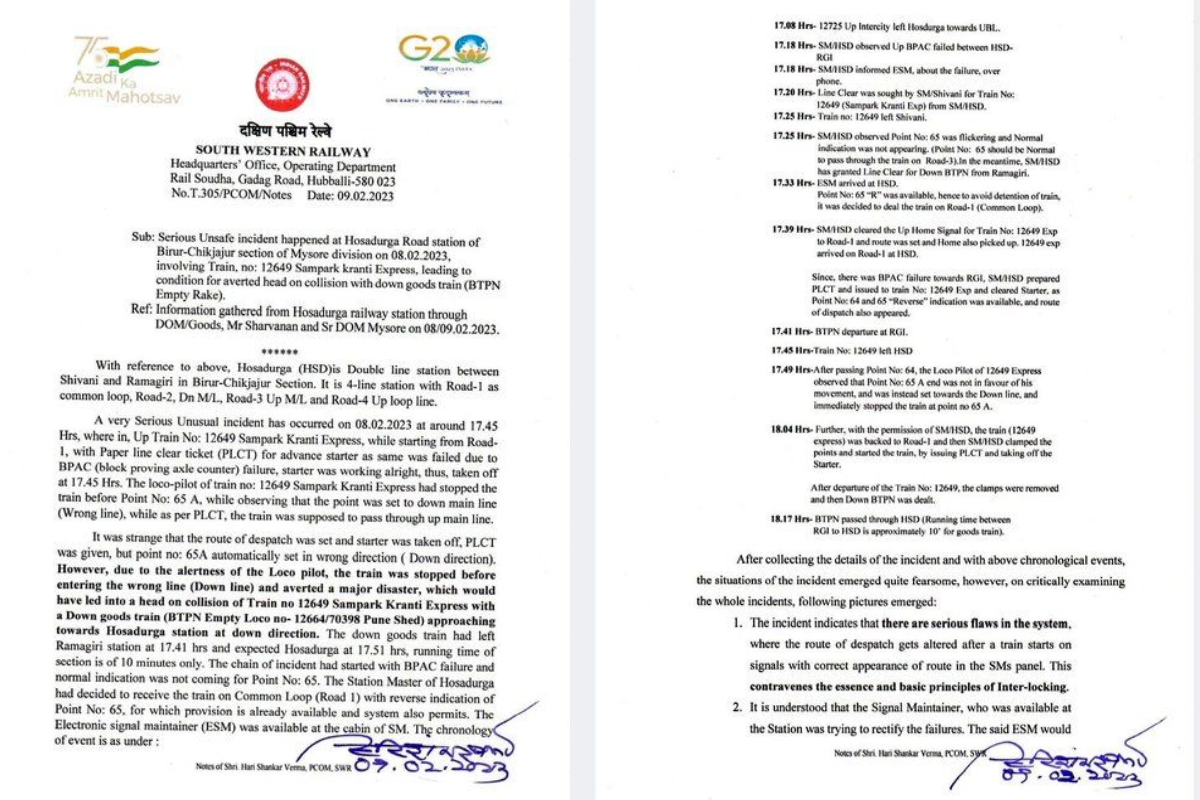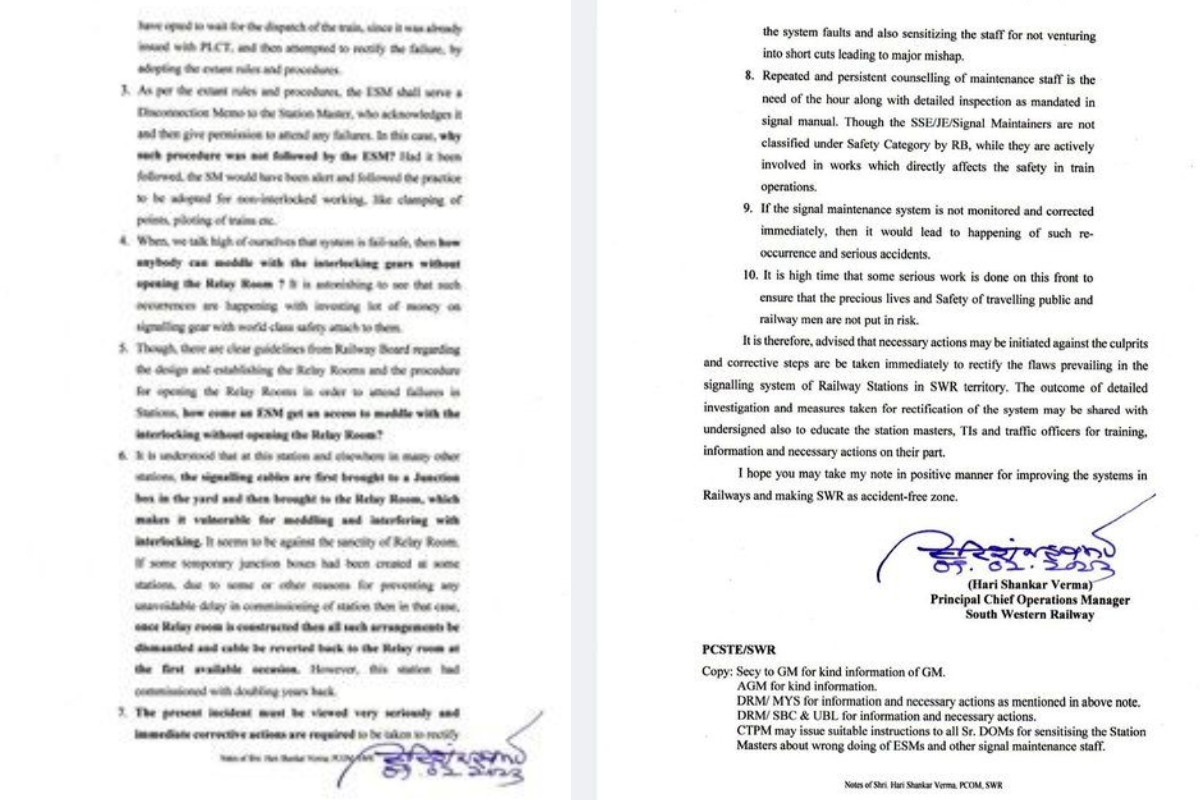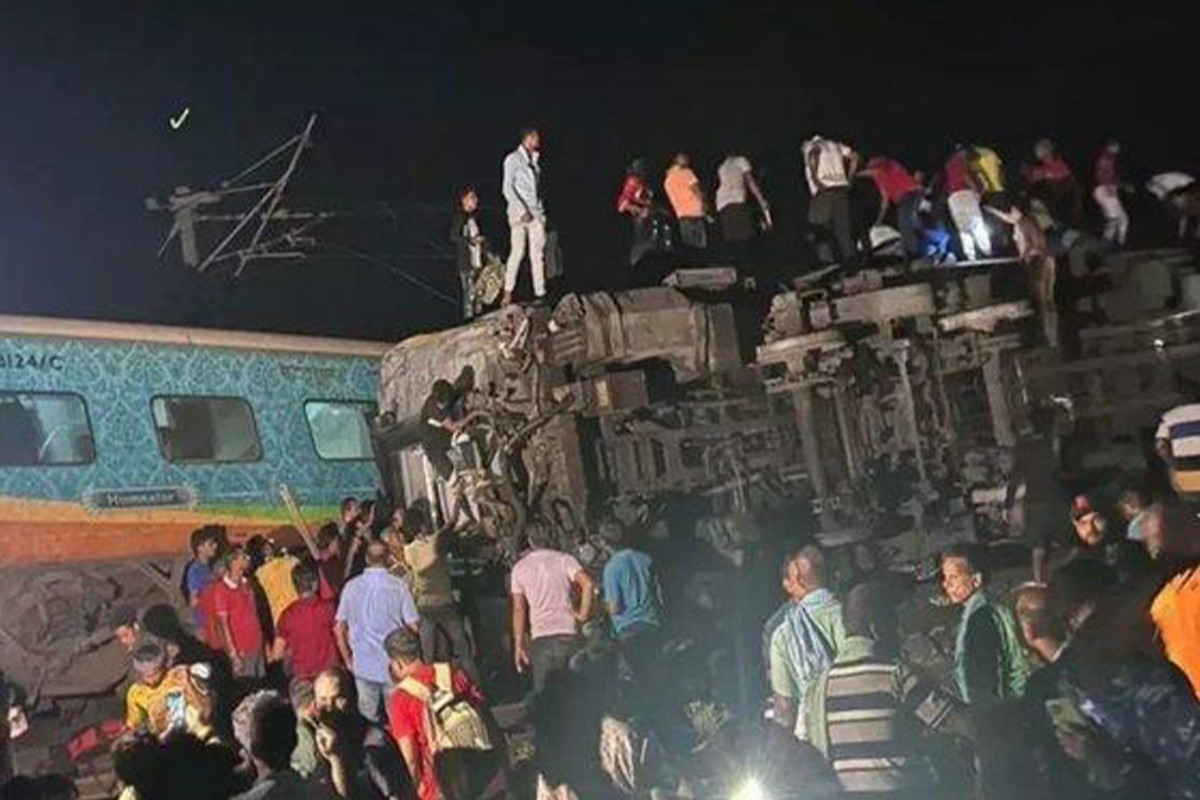NEW DELHI: Months before the devastating train accident in Odisha that claimed the lives of more than 250 people, a senior Railways official had raised concerns about “serious flaws in the signalling system.”
The official’s warning emphasised the need for monitoring the signal maintenance system to prevent potential accidents.
While Union Railway Minister Ashwini Vaishnaw attributed the Odisha train tragedy to a “change in electronic interlocking,” the principal chief operations manager of the South Western Railway Zone had previously highlighted the system’s flaws.
In a letter dated February 9, a copy of which is available with The New Indian, the principal chief operating manager, Hari Shanker Verma, expressed concerns about a signal failure incident involving an express train, which was averted due to the vigilance of a loco pilot.


The letter stated, “A very serious unusual incident occurred on 08.02.2023 at around 17.45 hrs, wherein, Up Train No: 12649 Sampark Kranti Express, while starting from Road1, with Paper line clear ticket (PLCT) for an advance starter as same was failed due to BPAC (block proving axle counter) failure, the starter was working alright, thus, taken off at 17.45 Hrs.”
“The loco-pilot of train no: 12649 Sampark Kranti Express had stopped the train before Point No: 65 A, while observing that the point was set to down the main line (Wrong line), while as per PLCT, the train was supposed to pass through up main line,” it added.
ALSO READ: Balasore train accident: Odisha GRP say ‘death by negligence’ in FIR
The incident exposed “serious flaws in the system”, where the dispatched route was altered after the train started on signals with the correct appearance of the route on the SMS panel, violating the fundamental principles of interlocking.
The official urged immediate action against those responsible and the rectification of flaws in the signalling system, stressing the importance of sharing the investigation outcome and measures taken with station masters, TIs, and traffic officers for their training and necessary actions.
ALSO READ: Train collisions, fatalities reduced by three times under Modi govt
Regarding the signal maintenance system, the Railways official warned that if not monitored and corrected promptly, it could lead to recurring accidents. The official questioned why the established procedure for non-interlocked working, such as clamping of points and piloting of trains, was not followed in the incident, suggesting that the signal maintainer should have waited for the train’s dispatch before attempting repairs.
“It is understood that the signal maintainer, who was available at the station, was trying to rectify the failures. The said ESM (Electric signal maintainer that installs, maintain and repairs the electrical and electronic signalling systems used in railways) would have opted to wait for the dispatch of the train, since it was already issued with a PLCT (Paper Line Clear ticket which is the authority to proceed issued in the following occasions during the failure or suspension and non-provision of block instrument), and then attempted to rectify the failure, by adopting the extant rules and procedures,” he wrote.
ALSO READ: Low on funds & staff, 75% train mishaps due to derailment: CAG report
“As per the extant rules and procedures, the ESM shall serve a disconnection memo to the station master, who acknowledges it and then give permission to attend to any failures. In this case, why was such a procedure not followed by the ESM? Had it been followed, the SM would have been alert and followed the practice to be adopted for non-interlocked working, like clamping of points, piloting of trains etc,” he suggested.
The tragic accident in the Balasore district involved the Bengaluru-Howrah Superfast Express, the Shalimar-Chennai Central Coromandel Express and a goods train. With a death toll of 275 and over 1,100 injured, the incident was triggered by a derailment. Minister Vaishnaw confirmed that the change in electronic interlocking was the cause of the accident, while the investigation report by the commissioner of railway safety is awaited.
YOU MAY ALSO LIKE:
“The commissioner of railway safety has investigated the matter and let the investigation report come. But we have identified the cause of the incident and the people responsible for it… It happened due to a change in electronic interlocking. Right now our focus is on restoration,” the railway minister added.
The tragic train accident in Odisha has underscored the urgent need for thorough investigations into the flaws within the signalling system. As the investigation unfolds, it remains crucial to address the highlighted concerns and rectify the deficiencies to prevent further accidents and ensure the safety of passengers.
YOU MAY ALSO LIKE:

